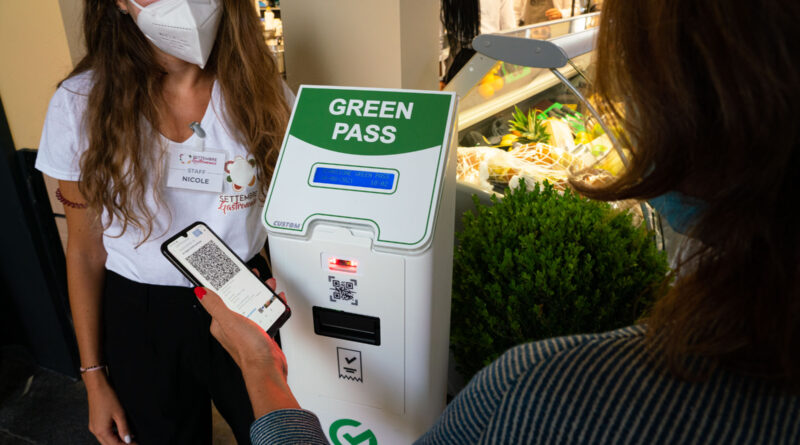Israel’s Green Pass policy: A chronicle of a tragedy foretold
Escalation of commitment refers to decision-makers’ tendency to persist with or even intensify losing courses of action (Sleesman, Lennard, McNamara, Conlon, 2018). In a typical escalation situation, large amounts of resources are initially invested, but despite these expenditures, the project is in danger of failing.
At this point, the decision-maker must decide whether to persist by incurring additional expenses or to abandon by terminating the project, or exploring alternative courses of action (Moser, Wolff, Kraft, 2013). Only at this point, the decision-maker is so invested in the project that he or she is pushed to aggravate the steps taken, and invest further resources.
Escalating their commitment to a previous course of action not only traps the decision-makers but pushes them to behave in ways which act against their own self-interest, and that of the people they represent – sometimes with catastrophic consequences (Bazerman and Neale, 1992).
In a recent paper, Hafsi and Baba (2022) show how collective health fear, fed by politically fearful leadership, had generated a cascading, isomorphic set of exaggerated responses in most countries. Muller (2021) similarly shows how the trap of what she names “performative scientism” has led to a decision-making process that is secretive, paternalistic and dismissive of dissenting views. This resulted in excessive reliance on, and confidence in, catastrophic projections that informed the enforcement of an aggressive lockdown and vaccination policies regardless of their toll on public health and trust.
I argue that pursuing such a commitment bias was made possible by governments persuasively portraying the Corona outbreak as a “potential uncertainty” – one that no known possibility is sufficient to counter it, and therefore requires a distinctive perspective on the future, and the present. Its uniqueness is so overwhelming that it warrants and legitimizes new forms of mass surveillance, detention, and restrictions (Samimian-Darash, 2013).
In early March 2021, Israeli law required the presentation of a Green Pass certificate as a precondition for entering certain businesses and public spheres. Entitlement for a Green Pass was granted to Israelis who have been vaccinated with two doses of COVID-19 vaccine, who have recovered from COVID-19, or who are participating in a clinical trial for vaccine development in Israel.
The Green Pass was publicly justified as an essential measure for retaining immune individuals’ freedom of movement and for promoting the public interest in reopening the economic, educational, and cultural spheres of activity (Kamin-Friedman and Peled Raz, 2021). Kamin-Friedman and Peled-Raz even exclaim that “although the Green Pass may not correlate with trust building or the promotion of solidarity, it is ethically vital to consider its application under the Israeli circumstances” (2021: 3).
Yet, in August and September 2021, despite the policy, the case numbers continue to skyrocket, with over 7,000 new cases reported daily and approximately 600 people hospitalized in serious condition with the disease. This was despite over 57% of the country’s 9.3 million citizens having received two doses of the Pfizer/BioNTech vaccine, and over 3 million of Israel’s 9.3 million people having received a third shot. In response, the Israeli government broadened its scope to infringe on almost all aspects of life.
By the 8th of August the Green Pass policy was extended to schools, Academia, and voluntarily adopted by various organizations in the public and private sectors (even hospitals). Employers quickly used their prerogative to restrict the access of unvaccinated employees to the workplace, and in some cases even terminate their work.
By the 30th of September, holders of Israel’s vaccine passports were directed to get a third dose of the Pfizer -BioNTech vaccine, or lose their Green Pass that allowed them crucial and basic freedoms. In September 2021, the Israeli Ministry of Health confirmed that cases are occurring in both vaccinated and unvaccinated populations. Israeli findings also confirmed that the Pfizer vaccine’s ability to prevent severe disease and hospitalization is waning over time — as is the shot’s protection against mild and moderate disease.
Even so, only on February 11th did Prime Minister Naftali Bennett announce the end of the program, ironically while the new COVID-19 infections remained high.
Fotaki and Hyde (2015) found that escalation of commitment is more likely to be accompanied by three self-protecting mechanisms: idealization, splitting, and blaming. Idealization occurs when decision-makers set unrealistic goals or expectation yielding aggressive policies (i.e. Zero contamination, beating Delta, or reaching herd immunity through vaccination).
Splitting refers to a tendency to divide the world into “good” and “evil” (Prime Minister Bennett was cited saying: “Dear citizens, those who refuse vaccines are endangering our freedom to work, the freedom of our children to learn and the freedom to hold celebrations with the family”). Blaming involves projecting unwanted parts of the undesirable situation onto those typified as “bad” or “evil.” In this way the evidence of failure is blamed onto the group typified as “evil,” rather than triggering meaningful action to resolve problems.
The Green Pass policy assumes that since people are loss-averted, the fear of heavy restrictions, social amenity, and possible loss of income will push them to vaccinate. It also conveniently paints a suitable culprit to be blamed for the strategy’s failed outcomes.
Yet, loss aversion also means that those belonging to the newly formed privileged group will insist on holding on to their privileges even when proven that these privileges can put others at risk of infection. This privileged group may also develop a false sense of immunity, causing them to forego protective measures, putting them even more at risk of spreading the disease without them even knowing.
And so, loss aversion may inadvertently motivate the very behaviors policymakers want to prevent. More importantly, it dangerously allows this group to maintain a collective fantasy that the strategy achieves its goals. Imagine their frustration once they discovered that their “stepping up and taking a risk for the sake of the communal goal of vaccine development” was at best futile, and at worst put them at risk of contracting the disease or suffering the vaccine’s side effects.
But is the Green Pass policy effective in pushing objectors to vaccinate? A study conducted by the Dror (Imri) Aloni Center for Health Informatics in July-August 2021 revealed that over 58% of the 600 participants in the study said that fear from sanctions was a major factor in their decision to vaccinate. Fifty-six percent of the participants who were fully vaccinated thought that the Green Pass policy’s whole purpose was to pressure people to vaccinate.
Even so, 44% of them supported its application. However, 73% of the unvaccinated participants claimed that the Green Pass policy was a coercive measure and reported being very disturbed by the steps taken to encourage vaccination. The study also reveals a staggering decline in trust in both the government and the medical establishment by those who refuse to vaccinate.
The greater the distrust, the greater the fear of sanctions. But the greater the fear of sanctions, the more those objecting to vaccinate were adamant not to vaccinate. The erosion of trust found in this study echoes other studies indicating that the Israelis are losing trust in public institutions, with over half saying the country’s democracy is in danger (Plesner, Y and T, Helman, 2020).
A recent study investigating COVID-19 vaccine hesitancy using nationally representative samples of 1,000 individuals from 23 countries revealed that across all countries, vaccine hesitancy is associated with a lack of trust in COVID-19 vaccine safety and science, and skepticism about its efficacy. Vaccine-hesitant respondents are also highly resistant to required proof of vaccination; 31.7%, 20%, 15%, and 14.8% approve requiring it for access to international travel, indoor activities, employment, and public schools, respectively (Lazarus, Wyka, White, Picchio, Rabin, Ratzan, El-Mohandes, 2022).
To conclude, not only does the Green Pass policy fall short of achieving its public health goals, it also further erodes the public’s trust in government and the medical establishment, and dangerously binds the decision-makers to a damaging course of action.
From a strategic perspective, such policy overreaction during situations of emergencies pushes governments to entrench, seeking more aggressive measures to enforce the policy while suppressing rising public resistance. It is thus pushed to apply a variety of censorship and suppression tactics, including the retraction of papers pointing to vaccine safety problems, obstructing research funding, summoning to official hearings, and even the suspension of medical licenses, all in the hope of crushing resistance (Guetzkow, Shir-Raz, Ronel, 2022).
Slowly the goal becomes enforcing the policy rather than protecting the public’s health and effectively managing the health condition.
References
- Bazerman, M., & Neale, M. (1992). Nonrational escalation of commitment in negotiation. European Management Journal, 10(2), 163-168.
- Fotaki, M., & Hyde, P. (2015). Organizational blind spots: Splitting, blame and idealization in the National Health Service. Human Relations, 68(3), 441-462.
- Hafsi, T., & Baba, S. (2022). Exploring the Process of Policy Overreaction: The COVID-19 Lockdown Decisions. Journal of Management Inquiry, 10564926221082494.
- Kamin-Friedman, S., & Peled Raz, M. (2021). Lessons from Israel’s COVID-19 Green Pass program. Israel Journal of Health Policy Research, 10(1), 1-6.
- Leigh, J. P., Moss, S. J., White, T. M., Picchio, C. A., Rabin, K. H., Ratzan, S. C., … & Lazarus, J. V. (2022). Factors affecting COVID-19 vaccine hesitancy among healthcare providers in 23 countries. Vaccine.
- Moser, K., Wolff, H. G., & Kraft, A. (2013). The de‐escalation of commitment: Predecisional accountability and cognitive processes. Journal of Applied Social Psychology, 43(2), 363-376.
- Muller, S. M. (2021). The dangers of performative scientism as the alternative to anti-scientific policymaking: A critical, preliminary assessment of South Africa’s Covid-19 response and its consequences. World Development, 140, 105290.
- Plesner, Y and T, Helman, 2020, The Israeli Measure of Democracy. Israeli Institute of democracy, Jerusalem.
- Samimian-Darash, L. (2013). Governing future potential biothreats: Toward an anthropology of uncertainty. Current Anthropology, 54(1), 1-22.
Sleesman, D. J., Lennard, A. C., McNamara, G., & Conlon, D. E. (2018). Putting escalation of commitment in context: A multilevel review and analysis. Academy of Management Annals, 12(1), 178-207.
This article was originally published by the Brownstone Institute and has been re-published under a Creative Commons License.




